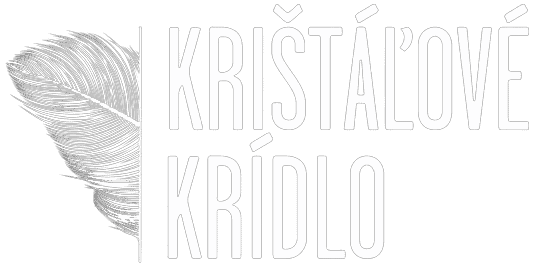If you stick to these tips, you’ll be able to successfully battle jetlag, select the best stress-free seats, breeze through airports, be productive on your trips and actually enjoy travel a hell of a more.
Tip #1: Battling Jetlag
Jetlag happens when your internal clock is not synchronised with the patterns of the sun outside. This happens, either when you don’t have a strict regimen at home or when you travel long distances.
Typically, your internal clock adjusts by one-hour every day. Thus, let’s say a 7 hour time difference takes 7 days to get acclimated. However, this can be hacked by food and mental exercises.
Matej’s special jetlag combating plan: Before you fly, change the time on your watch to match the one in your final destination. If for example, you have a 3 pm flight from Vienna to Hong Kong, you should already set your clock to 10 pm on your watch. Think of it, “Aaah, it’s already 10 pm, let me have one beer and dinner, and I will just sleep on the plane”.
In-plane, do not drink alcohol. That messes with you. Optimally, do not eat at all. A little bit of starvation never killed anybody. If you do this, you’ll be a ninja in combating the jetlag. And then, you’ll thank me a lot. Once you land, eat the next meal in the local timezone for the rest of the day (if its time for breakfast, have breakfast).
Never, I repeat, never take a nap after you land at the destination. Only go to bed after sunset and optimally after 9 or 10 pm. Sometimes its a struggle, but it’s well worth it. When it’s time to go to sleep, go to sleep, do not say it’s too early or that you’re not tired. Just go to bed at 10 pm.
Optimally every day you’re at the destination. When doing long-distance, buy in advance melatonin pills (available prescription-free in some countries like Slovakia). Have one 60 minutes before you go to bed (at 9 pm).
I also use one on my long leg of the journey (if it’s longer than 7 hours). Works like a charm. Exercise every day. Try to do at least 30 — 45 minutes or exercise when in the destination. Helps you to wake up and not feel tired.
If you stick to this plan, you will have no jetlag in 2 days. With the food hack and fasting on the plane, you can accelerate the internal clock much faster.

Tip #2: Selecting the least agonising flight
It’s not easy to choose the right flight for yourself. It’s always good to spend time on sites like google flights (much recommended) or hipmunk (also awesome), to search for flights according to these rules:
- Departure time doesn’t play a role in my long-haul flight selection. Anything goes. The rest is so much more important.
- Layover should not be shorter than 1:30hours and not longer than 4hours. Try to avoid more than one layover.
- If there isn’t a direct flight, choose a long flight and a short one. Always do the short leg first if possible. Do not sleep on the short leg, only sleep on the long leg.
- Arrival time should be sometime in the afternoon but not too late. This way you have enough time to find your hotel, check-in, unpack, walk around the city and enjoy a nice dinner before taking a good night sleep (see Tip #1).
- Always try avoiding working the same day you arrive. Use it to recover and get accustomed to the city, its smell, its vibe.
Tip #3: Actually enjoying the airport
Learning the inner works of your base airport and the specifics of your frequent routes can actually save you a lot of nerves and stress.
My home base in the Viennese airport and by learning the shorter routes and the emptier security lanes and the more obscure spots there, I’m able to get from the car to the lounge in under 5 minutes. And then from the lounge to the plane under 5 minutes too.
Lounges are totally worth it if you travel often. People think it’s hard to get into them, or that you can only get in if you have a business class ticket. That’s just not true. Get a good debit/credit card (like a MasterCard Gold) or buy PriorityPass (some banks give it for free to their premium clients, but I’ve just bought mine) or get a one-time entry pass to your selected lounge (typically between 15–30 Eur).
Hence, in your starting location go to a lounge directly after security. Chill there, have a snack (according to the jetlag battling rules above), charge your computer and chill before your flight. I usually come 2 hours before the flight, so I don’t stress with anything.
In your layover destination, also get into a lounge. If you’re often travelling, get a PriorityPass card, if you don’t travel very often, just pay the entry fee. In the lounge, you can sometimes shower, get a snack, lay down, get a massage or just relax. No need to sit on the uncomfortable seats in the airport.
Be sure to fill in your immigration documents correctly. You don’t want to stress out just because you have forgotten to fill out something. Do this while on the plane. If you’ll often fly to the destination, it’s worth looking into EasyEntry ways for foreigners. For a fee, you’ll be able to skip the lines at immigration. At Gatwick, it’s only 5 pounds and totally worth it (on some days it saves over 30–40 minutes of waiting time).

Tip #4: Selecting the perfect seat
Getting a good seat can mean the difference between a relaxed flight and a slow agonising nightmare. Some things you can influence, some of just pure luck. But you can help your luck, with some smart preparations. Here are my tips for perfect seats: It’s worth paying extra for a good seat. Don’t leave seat allocation to a computer. You’ll regret it during the whole flight if you do that.
Get a window seat, it’s perfect for sleeping.
Choose an exit row or a bulkhead seat (those after the split sections of bigger planes), has more space for legs. Choose them only if you’re not overweight, as those seats tend to be more narrow and that can get very uncomfortable very quickly. If you get seats at the rear of the plane, there’s less chance they will allocate the seat next to you to anybody.
Computes typically fill the flight from front rows to back. If you’re flying with another companion, get the aisle and the window seat and leave the middle seat free. Unless it’s a totally full flight, nobody will want to sit there, so you have a chance of a free seat next to you. Worst case scenario you switch with the person in the middle to be next to each other.
Tip #5: Small things that make a lot of difference
The rule here is to buy quality products that you can always reuse and that will be your trusty companions on the road for years to come. Buy a set of noise cancellation headphones. I recommend Bose QuietComfort 35 Mark II. You can thank me later.
Buy one of those pillows around your head that you can inflate. Makes a ton of difference.
Buy one of those eye masks and have it with you. Put it on if you want to sleep in the airplane (in accordance with the battling jetlag plan).
Always be hydrated on the flight. Buy a big bottle (0.5L) at the airport before you fly out. Drink it during flight. If you want to be eco, bring an empty bottle with you to the airport and fill it before the flight.
Get some sweet moisturising cream that you take with you. Hydrate your face regularly during the flight (it’s not gay, it just feels really good).
Don’t eat heavy foods, don’t eat sweets, don’t drink sweet drinks, optimally don’t eat at all (in accordance with the battling jetlag plan).
Get a battery pack so that you can charge your many devices on the go.
Have some relaxing music (I recommend the app Calm) to listen in background for sleeping during travel.

[related_article]
Tip #6: Operating normally in remote destinations
The whole idea of travelling according to these tips is to give you maximum energy and focus levels for any hard work you’re planning to do while far away from your home. Pack more rather than fewer things. Get a bigger suitcase, and don’t stress about the efficiency of your packing. You’re not competing for the most efficient packer, but for the least agony on the road. Plus, you’ll have more space for souvenirs back home. Take immunity boosters to stay healthy in new environments. Namely, I use Immunoglukan, which boosts your immunity, thus even on long haul trips, you can stay healthy. It’s s Slovak product and works wonders. Start with it one day before you fly and continue one or two days after you come back home.
Always have your passport and some cash in your pocket. (But have a copy of it digitally somewhere too). I carry around 200 USD dollars with me in the pocket for whatever reason. Also, I usually carry around 100 USD equivalent in the local currency, just if something needs to be paid cash. Otherwise, I always pay with a card.
Stash some of your credit cards, ID’s and cash somewhere safe (like the hotel safe). You really don’t want to be stuck in a foreign country with no cash, no cards and no ID if somebody robs you.
Stick to your daily regimen just as you would be at home. Or at least try to get as close to it as possible. And don’t go too heavy on drinks or trying to see everything in the limited time you’re there. Remember, reason #1 you’re travelling is business, so make sure your actions don’t hinder your work performance. Thus don’t skip meals, workout and go to sleep at a reasonable time.

Overall, travel can be a lot of fun, not a lot of pain and if executed properly, can be smooth sailing without destroying your energy levels. I wish you a lot of happy miles and good experiences with your travel. For more tips or individual support, feel free to reach out to me directly.










